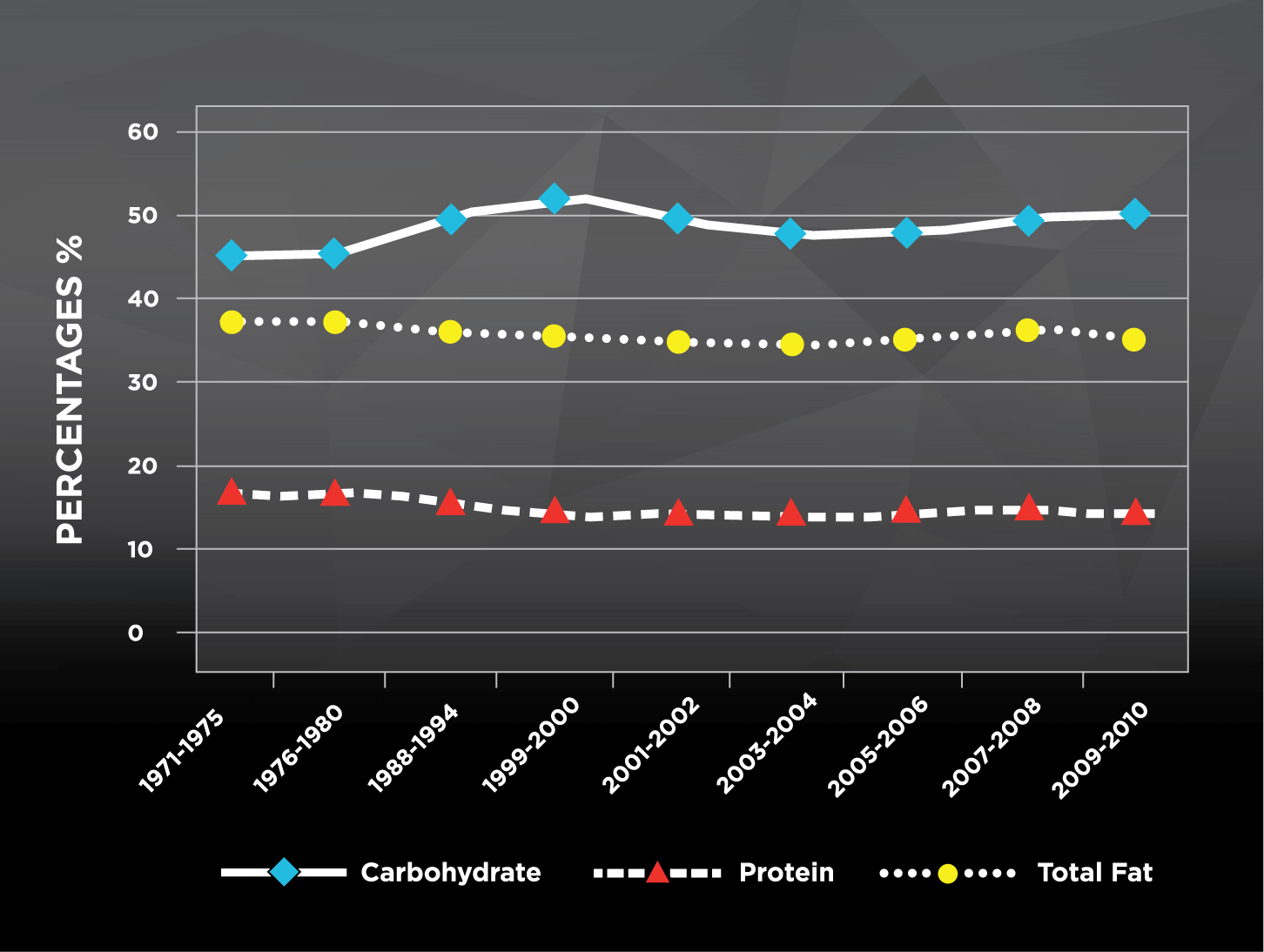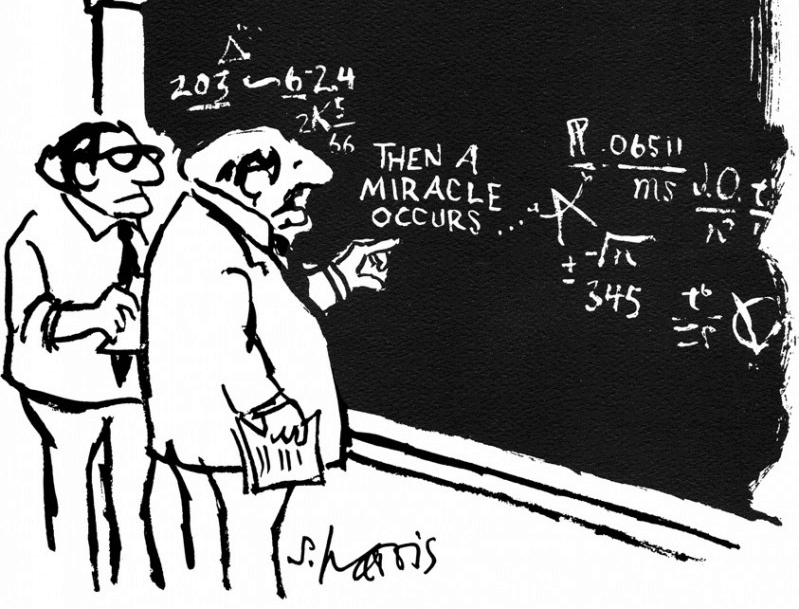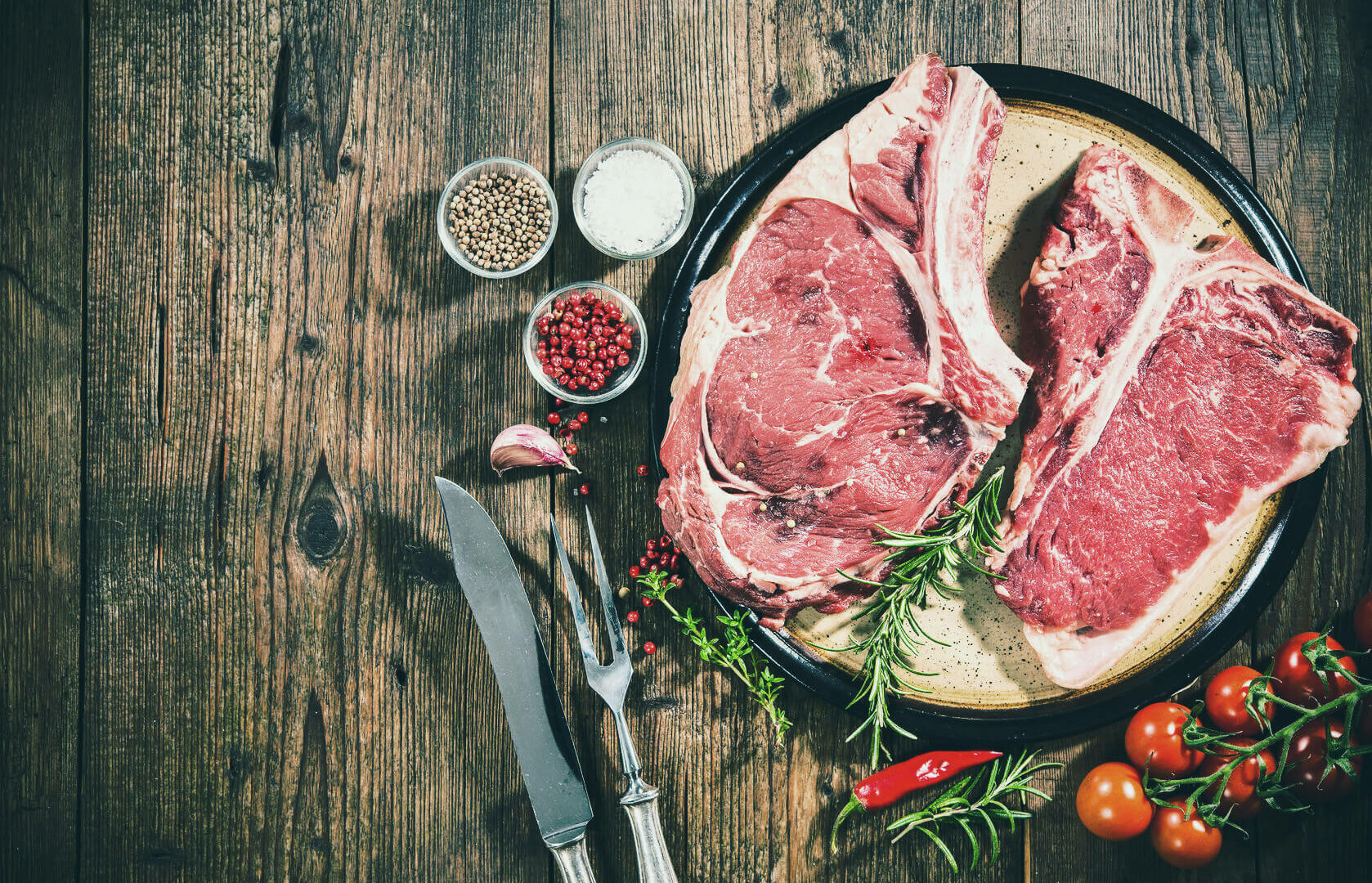The never-ending debate on the use and benefits of a low-carb diet may not be as complex as you think.
By taking a step back and an unbiased look at the research, potential mechanisms and, most importantly, the context and application, you can finally make your own educated and informed decision.
Here’s everything you need to know…
A Brief History of Low-Carb Diets & Research
Low-carb diets have been around from the start of time, dating back to the Paleolithic era where the main sources of carbohydrates were exclusive to fruits, vegetables and a few other natural products [1].
Until the last century, with the rise of starch-based foods, grains and sugars, a general person’s diet would have been lower in calories, higher in protein and healthy fats. While it’s easy for low-carb dieters to point this out and state we were healthier back then, life expectancy has only increased as times gone on, so this does not automatically make all carbs evil.
In addition, observation data which monitors trends can easily highlight the rise in carb or sugar consumption and its links to disease or obesity. However, this only weakly supports the benefits of a low-carb diet and isn’t much use in a low/carb debate. Anyone who understands research knows this and understands that there can be many other key factors or variables that could also explain these findings [2][3][4].
These include:
- Reduced daily activity or NEAT [5]
- Reduce physical exercise [6]
- Sedentary lifestyle [7]
- Increased stress [8]
- Alcohol [9]
- Increased intake of unhealthy fats [10]
- Excess calorie intake and ultimately an energy imbalance, burning less and consuming more (which is key) [11][12]
This data is far from conclusive and if you try hard enough, you can find cause and effect very easily. For example, the rise in smart phone use likely correlates to a rise in obesity levels, so, does this make smart phones the key cause of obesity?
Along with this weak cause and effect like observational research, numerous controlled studies have also shown the benefit of a low-carb diet for fat loss, even when compared to the typical higher carb, low fat diet [13].
Again, while low-carb advocates love to point this out, when we take a closer look it’s clear to see several issues are involved, such as differences in protein intake, calorie intake, nature of the participants (i.e. most are overweight and obese with impaired metabolism, not bodybuilders), poor food monitoring and adherence issues. Combined, these factors can easily exclude 90% of the studies from the argument [14][15].
Ultimately, if protein, adherence and calories are not exactly the same between groups we simply cannot state that “low-carb diets provide a metabolic advantage”. While some studies have controlled these factors and still shown greater benefits, how many of those studies are on non-obese, Biolayne members?
Remember, the goals, physiology and metabolism of a sedentary obese individual is different to someone training 6 days a week, trying to drop from 15% to 5% body fat and also wanting to maximize performance and muscle mass!
Below is an interesting graph showing the change in macronutrient consumption over 40 years. As you can see, our carb intake hasn’t sky rocketed; instead, it’s risen by around 5%, which is matched with a slight decrease in fat intake. In other words, we are just eating more total calories and food, not a ton more carbs [16].

Hopefully you can now see that all the apparent research supporting a low-carb diet has limitations and, certainly in this case, you shouldn’t judge a book by its cover. Now, let’s take a closer look at the mechanisms of a low-carb diet and see what “unique” benefit they may or may not provide.
The Mechanisms of a Low-Carb Diet
At first glance, there are numerous mechanisms that support the benefits of a low-carb diet.
These include [17][18][19][20][21]:
- Reduced insulin levels
- Better control of blood sugar / glucose levels
- Possibly improved satiety (depending on the individual)
- Possible improvements in hunger hormones such as Ghrelin,
- Increased ability to burn or run off fat
- Greater dietary adherence or enjoyment (depending on who you ask)
- Rapid reduction in water and glycogen which can motivate people just starting out (although it is then re-gained after a cheat meal and demotivates people!)
- Simple way to cut calories as you are eliminating an entire food group
- Greater reliance on whole, single ingredient goods with more nutrients and a low calorie / energy density.
- Elimination of foods that are easy to over eat or to binge on
- Increase in vegetable and salad intake
- Clear cut rules which people can follow
- Easy way to increase protein intake, as most meals are based on meat of fish
Although there are plenty of mechanisms supporting the use of a low-carb diet, if you take a closer look, several of the key points that make a successful diet aren’t necessarily exclusive. Instead, they are simply improving a general person’s dietary intake and structure like most other diets could, as shown in bold.
Let’s break down each unique or potential mechanism further.
Analyzing the Mechanisms Behind this “Metabolic Advantage”
While the other mechanisms above sound wonderful, it’s important to remember that mechanisms don’t always turn into results or benefit in real life situations.
Burn More Fat
One of the main mechanisms people preach is the ability of a low-carb diet to increase your ability to burn fat. However, the usefulness of this is highly debatable and outside of ultra-endurance events, yet to be proven [22].
Thinking logically, sure, you will burn more fat because you are consuming more dietary fat. Although this still doesn’t alter the fundamentals of energy balance and necessarily mean you’ll burn more fat off the body, which is of course the goal.
Improve Satiety / Reduced Hunger
Many low-carb diets and even studies suggest it improves satiety. There is some supportive data to show improvements in ghrelin, the hunger hormone vs higher-carb diets. This could be a true advantage; however, far more research where they control calorie density of meals and protein intake needs to be conducted [23].
For the most part, improved satiety may occur because people eat more protein (which is proven to decrease hunger), reduce calorie / energy dense processed foods and ultimately, people eat a lot more low calorie vegetables. This too, can be achieved on a higher carb diet and is not unique to low-carb diets [24].
Finally, the greater satiety, reduced hunger and improved dietary adherence witnessed in low-carb diets is extremely subjective and depends on you, as an individual. As I always say, what works great for one person could be terrible for another.
Greater Weight Loss
While greater weight loss is often seen in research, a lot of these studies can be explained by a greater reduction in calorie and protein intake, combined with poor adherence and incorrect reporting by participants [25][26].
More research is certainly needed in tightly controlled conditions, such as metabolic ward studies (where participants are confined for the duration) where they also tightly control protein and calorie intake.
Another issue with the research is people forgetting the alterations in water and glycogen. As each gram of carbohydrate pulls around 3g of water, a low-carb diet can easily “increase” a 2kg or 4-5LBs of “weight loss” which, unless refeeding before comparing results, can further throw off the data and results [27].
Reduced Insulin Levels
Finally, the reduction in insulin and blood sugar levels is certainly important for health and disease risk. This is particularly true for someone who is overweight or diabetic. However, once again, most people who are healthy, exercise daily and are relatively lean are also likely to have little or no issue with their current insulin or blood sugar function.
Remember, in a healthy functioning athlete, insulin actually plays an important role in muscle growth, nutrient delivery and reducing muscle breakdown [28].
Finally, the reduction in these levels is not exclusive to a low-carb diet. Many of these findings can partly be explained by general dieting or weight loss itself (regardless of carb content or macro ratio) [29].
For example, several studies in reduced calorie high-carb conditions still show improved metabolic health and other markers of health such as cholesterol. In other words, it’s partly weight loss and calorie restriction alone that provide these benefits, not just the removal of carbs [29].
As you should now see, many of the benefits supporting a low-carb diet could be extremely useful for a beginner starting out or an overweight / diabetic individual trying to improve general health. The forced reduction in carbs and dietary restriction paints a great picture for weight loss, reducing calories and increasing protein intake and lean meats / vegetables.
However, for most Biolayne readers, regardless of their carbohydrate intake, they are likely covering all these dieting points. Even on a higher carb diet, it’s easy to consume plenty of protein, vegetables, reduce calories and base the majority of your food choice on more whole foods with a lower energy density if you wish.
Interestingly, many of these benefits aren’t actually exclusive to a low-carb diet, and of the ones that are, their relevance and importance is questionable for any healthy athlete or bodybuilder.
The Potential Benefits of a High-carb Diet
Whether low-carb gurus choose to accept it or not, there are actually some important uses and benefits that a higher carb diet may provide.
This is especially true for an athlete or bodybuilder who requires and deserves carbs on a regular basis. For the active, non-obese individual or athlete, the benefits of carbs may include:
- Improved Sporting Performance, with 100s of studies proving that carbs help you optimize performance. While a few low-carb studies have matched performance, several have shown a decrease [30].
- Potentially Improved Recovery, although small, it may be more important during a low calorie diet, contest prep or intense training periods [31]
- Improved Sleep, vital for recovery, hormones, fat loss and nearly every other reason imaginable [32][33].
- Reduced Protein Breakdown / Gluconeogenisis (which converts fatty acids and amino acids into blood sugar), which may help preserve muscle in a diet [31].
- Increased Insulin, not all bad, it actually functions as an anabolic hormone (i.e. it makes stuff grow, both muscle and fat!) [28].
- Decreased cortisol, which can cause issues if you are overtrained, generally stressed and under recovered [32].
- Immune System support, which may be increasingly important as you drop to single digit body fat and diet in contest prep conditions [33].
As you can see, there are some great benefits supporting the use of carbs for athletes and bodybuilders.
Eventually, it comes down to context of the diet and individual, along with many other factors, such as one’s goal, physiology, training regime, metabolism, preference and more.
For most athletes and Bodybuilders, a higher carb diet may help maximize performance, especially when dieting. Based on the above, could a high-carb diet actually be superior? As always… It depends.
Context is Key
As we all know, there are certainly negatives of a higher carb intake when it’s taken out of context.
What’s crucially important for you to understand is the difference between a sedentary and “normal” individual who doesn’t exercise, eats too many calories, and consumes only processed food/carbs, combined with unhealthy fats and has had an excessive calorie intake for years. When you compare this to yourself, a healthy athlete or bodybuilder, you can see it’s very hard to draw a conclusion or state carbs are “bad”.
This list of unhealthy lifestyle choices is the principle reason people gain fat and succumb to illness. Sure, carbs may play a role, but in context, this is a totally different scenario to a healthy, calorie-controlled high-carb diet in athletes or Bodybuilders.
Quite simply, a low-carb diet can work great for some and not so great for others. This also applies to a high-carb diet and every other good diet out there, for that matter.
A “one size fits all” approach is normally wrong; far superior is a personalized approach for each individual. This is what separates the good coaches from the bad ones and the unbiased and ethical scientists and professionals from the “gurus” who only preach and believe one side of the argument.
Like many coaches, I’ve had great success with clients on low-carb diets. However, for every success on a low-carb diet, I’ve also had equal success with clients on a high-carb, low fat diet.
Does a Low-Carb Diet Provide a Metabolic Advantage?
While a low-carb diet certainly has benefits and uses, it’s unlikely that it provides a unique or significant metabolic advantage for weight loss or body composition when all the variables and factors are controlled for.
It’s important to realize we are focusing on physique enhancement, fat loss, sports performance and not disease, which is a completely different discussion. In addition, we are discussing general low-carb diets and not necessarily a ketogenic diet (however the majority of this article still applies when it comes to body recomp/fat loss), which in specific situations such as brain disease may actually provide a unique metabolic advantage.
For the most part, low-carb diets work well as they force the individual to optimize the important aspects of their diet such as protein intake, calories, reduction of processed food and in general, provide people with some clear-cut rules they can follow and stick to. Like other diets, such as paleo, intermittent fasting etc., they all work because they ensure these fundamental weight loss principles (i.e. reduction in calories, high protein etc.) are in place and not because they provide some mythical benefit (sorry!).

Remember, this article isn’t saying a low-carb diet is bad either, with plenty of research and anecdotal evidence around the world showing it works great for some. For the general person, a lower carb approach could be a great idea. However, for an athlete or bodybuilder focusing on fat loss, a low-carb diet is just one of many options, with both positives and negatives supporting its use.
It’s unlikely that it provides any major metabolic advantages to a bodybuilder during a diet and, in contrast, a higher or moderate-carb approach many help optimize performance and retain muscle mass when dieting.
In summary, pick the diet that best suits your goals, body and most importantly, one you can enjoy and stick with. Whether this is low-carb, moderate-carb or high-carb, the decision is really up to you. After all, consistency is the most important factor in long-term success!
References
- http://www.ncbi.nlm.nih.gov/pubmed/21745624/Nutr
- http://ajcn.nutrition.org/content/86/4/899
- http://care.diabetesjournals.org/content/34/6/1249.short
- http://www.sciencedirect.com/science/article/pii/S0002934398001909
- http://atvb.ahajournals.org/content/26/4/729.short
- http://europepmc.org/abstract/med/11427779
- http://link.springer.com/article/10.1007/s11745-003-1038-4
- http://www.bmj.com/content/332/7540/521?goto=reply
- http://ajph.aphapublications.org/doi/abs/10.2105/AJPH.2013.301643
- http://onlinelibrary.wiley.com/doi/10.1038/oby.2007.200/full
- http://onlinelibrary.wiley.com/doi/10.1038/oby.2007.364/full
- http://www.ncbi.nlm.nih.gov/pmc/articles/PMC3738432/
- http://archinte.jamanetwork.com/article.aspx?articleid=409791&resultclick=1
- http://ajcn.nutrition.org/content/83/5/1055.full
- http://www.tandfonline.com/doi/abs/10.1080/07315724.2004.10719381%23.V6LzUMdln-Y
- http://www.ncbi.nlm.nih.gov/pubmed/23426032
- http://www.sciencedirect.com/science/article/pii/S0140673604169869
- http://jn.nutrition.org/content/134/3/586.short
- http://www.ncbi.nlm.nih.gov/pubmed/16403234
- http://www.ncbi.nlm.nih.gov/pubmed/22735432
- http://www.ncbi.nlm.nih.gov/pubmed/17228046
- http://www.ncbi.nlm.nih.gov/pmc/articles/PMC423974/
- http://www.ncbi.nlm.nih.gov/pmc/articles/PMC2775646/
- http://www.ncbi.nlm.nih.gov/pubmed/18301271
- http://ajpendo.physiology.org/content/281/5/E891.short
- http://ajcn.nutrition.org/content/52/3/421.short
- http://ajprenal.physiology.org/content/293/4/F974
- http://www.ncbi.nlm.nih.gov/pmc/articles/PMC185808/
- http://europepmc.org/abstract/med/1322866
- http://link.springer.com/article/10.1007/s11932-007-0036-5
- http://jap.physiology.org/content/96/2/674.short
- http://www.ncbi.nlm.nih.gov/pubmed/18239586
- http://www.ncbi.nlm.nih.gov/pmc/articles/PMC4444051/

